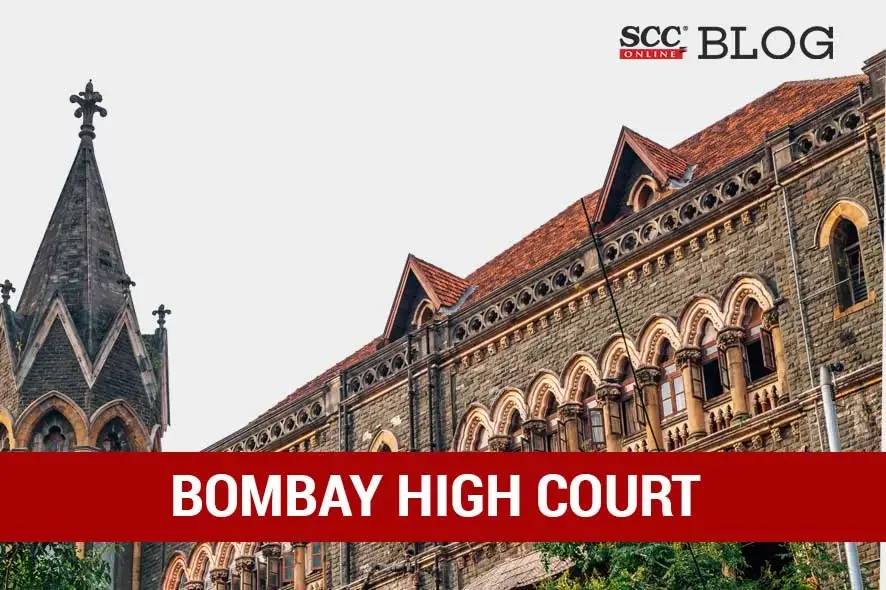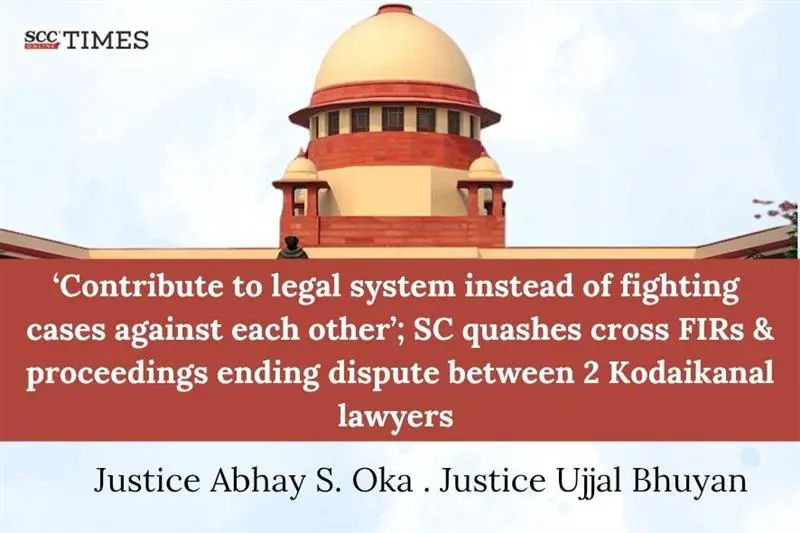Bombay High Court: In an appeal under Section 374 of Criminal Procedure Code, 1973 (‘CrPC’) assailing the judgment and order of conviction passed by the Trial Court on 2-06-2016 which held the appellant guilty and convicted for offences punishable under Sections 302 and 201 of Penal Code, 1860 (‘IPC’), the Division Bench of Vibha Kankanwadi and Abhay S. Waghwase, JJ. highlighted the failure of prosecution to prove circumstances beyond reasonable doubt and extended benefit of doubt towards the appellant.
Background
As per prosecution story, the appellant was the first wife of ‘X’ whose relations became strained after 5-6 years of cohabitation and she frequently used to go to reside with her parents. In 2014, she went to her parents and did not return. It was contended that when all efforts of X and his parents failed to convince her to come back and cohabit with her husband, X performed second marriage with the deceased who was differently abled. Annoyed by this fact, the appellant came back to cohabit with X and started harassing his second wife, i.e., the deceased.
On 3-12-2014, the appellant and the deceased left the house together to wash clothes at the river. There, the deceased was strangulated, killed and her dead body was thrown in the well. The Trial Court convicted her and the instant appeal challenged the same.
Court’s Analysis
‘Being the first appellate court and the last fact-finding court’, the Court decided to re-examine, re-analyze and re-appreciate the entire evidence to assess the sustainability of the impugned judgment as per law. The Court pointed out the circumstances relied by the prosecution as motive, last seen together and scene of occurrence. The Court perused the statements of 12 prosecution witnesses including X, appellant’s mother-in-law, autopsy doctor, etc. It further highlighted through evidence that the death was unnatural and homicidal.
The Court followed the rule that “when the case is based entirely on circumstantial evidence, the inference of guilt would be justified only if all incriminating facts and circumstances are found to be incompatible with the innocence of the accused” as laid in several cases including Hanumant v. State of M.P., (1952) 2 SCC 71; Shivaji Sahabrao Bobade v. State of Maharashtra, (1973) 2 SCC 793; Sharad Birdhichand Sarda v. State of Maharashtra, (1984) 4 SCC 116 and Padala Veera Reddy v. State of A.P., 1989 Supp (2) SCC 706. The Court reiterated the need for circumstances not only to be complete but also to be proved to be consistent particularly with the hypothesis of accused’s guilt and completely inconsistent with his/her innocence.
The Court referred to Pritinder Singh v. State of Punjab, 2023 SCC OnLine SC 811 regarding conditions to be fulfilled for returning guilt in a case based on circumstantial evidence such as fully established conclusion of guilt. The Court also listed some other cardinal principles for proper administration of criminal justice like presumption of innocence, benefit of doubt, etc.
Assessment of Motive
The Court perused the story of appellant being annoyed by the deceased due to her second marriage with X, and the relevant evidence of witnesses. The Court pointed towards revelation of the appellant threatening and harassing the deceased, but without specifying the ‘when’ of such instances. The Court specified that “it was expected of these witnesses to show that immediately in proximity to the unnatural death met by deceased, there were threats or harassment.” The Court was also of the view that the two going together to wash clothes did not suggest strained relations. It was explained by the Court that “The case being based on circumstantial evidence, it was mandatory for prosecution to cogently establish the motive, but it has apparently failed to do so in the case in hand.” Thus, the Court regarded the circumstance of ‘motive’ as very weak or little evidence and held it not proved.
Last Seen Together
The Court noted that the evidence of the mother-in-law reflected the appellant and the deceased going together to wash clothes at the river, and only the appellant coming back home and hurriedly packing her belongings to leave with her son in auto rickshaw as informed by the neighbour. They further stated that they suspected and rushed towards the river where they found chappal and detergent near river and deceased’s dead body lying in the well. The Court highlighted that the neighbour who informed about appellant leaving with her son was not examined.
The Court observed that there was no convincing evidence about appellant and deceased leaving the house together to wash clothes and only appellant returning and hurriedly leaving the house with her son and belongings. The Court found the circumstance of last seen together not cogently established.
Scene of Occurrence
The Court found the evidence of recovery of footwear and its identification weakened since it lacked the witness’ signature as against the confirmation of signing the document in cross examination. The Court regarded the said circumstance of scene of occurrence against establishment of appellant having strangulated the deceased. The Court expressed that “Mere finding footwear at the scene of occurrence is itself not an incriminating circumstance against the appellant, more particularly when other circumstances like motive and last seen are not firmly and cogently proved.”
The Court reiterated the burden on prosecution to prove the guilt beyond reasonable doubt which was duly explained in State of U.P. v. Krishna Gopal, (1988) 4 SCC 302 and Krishnan v. State, (2003) 7 SCC 56. The Court explained that since the circumstances at the scene of occurrence were not unerringly pointing towards the appellant’s involvement, reasonable doubt crept in and benefit of doubt had to be extended to her.
As the impugned judgment accepted the case of appellant being annoyed of second marriage, took her to the well to eliminate the deceased and strangulated her and thereafter threw her body in the well. The Court said that there was no foundation/ legally acceptable evidence/ circumstance to connect appellant with the unfortunate death of the deceased.
The Court set aside the conviction in the instant matter and acquitted the appellant against offences punishable under Sections 302 and 201 of IPC.
[Usha v. State of Maharashtra, 2023 SCC OnLine Bom 1527, decided on 27-07-2023]
Judgment by: Justice Abhay S. Waghwase
Advocates who appeared in this case :
For Appellant: Advocate Renuka B. Ghule Palve;
For Respondent: Additional Public Prosecutor S.D. Ghayal.














